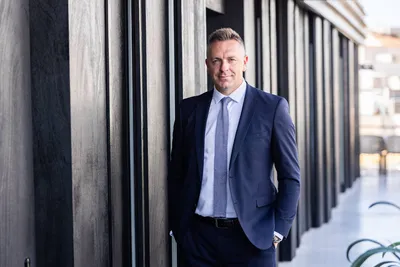So apparently many understand the value of being in the office, and employees are craving that contact. People are making an effort to see clients in person more. Meetings are more insightful; you sit down with somebody for coffee and find out all the nuances about who's who and who's doing what,’ adds Rebecca Wilson.

For Paul Knight (Kestria UK), hybrid working has become a much more productive way of working in the UK, with some of the bigger organizations working 100% from home and quite a few of his clients offering more of a hybrid solution. ‘One of the biggest issues with working from home is the impact it has on cultural development and core values that you get within the office that is hard to transfer into virtual meetings. There are a few banks coming up with alternative systems such as two days in the office, allowing employees to see different people all the time. However, fintech, international banking, and the payments market are quite technology-led and seem to be working from home more and more. At Senior and Executive levels face-to-face interaction is imperative. Attracting and retaining talent within a non-hybrid working environment is difficult because all good candidates want the option of a hybrid solution, and this always comes up,’ says Paul Knight.

Continuing demand for human interaction
In the US, Rebecca Wilson (Kestria USA: 20/20 Foresight Executive Search) has observed that there are a lot of the bigger institutions that have instituted very formal policies for a return to work with many workers trying to figure out when and why to come to the office. ‘It's almost like the whole social side of human interaction needs to be looked at totally differently. What does it mean to be a leader in a remote environment? What does it mean to be more of a passive player? I've talked to a lot of young people working for financial institutions in New York, 90% of whom have said they just want to be in the office.

The Future is face to face
Ije Jidenma (Kestria Nigeria) points out that, in terms of talent sourcing, people don’t want to lose what they have gained during covid, the flexibility of not always having to commute, and keeping costs down in relation to this. ‘I worked with an organization that wanted normal Monday to Friday physical attendance. But when they found out that the cost of overheads running those five days was enormous, they asked people to come four times a week and work from home on Fridays. The future may present compulsory physical meetings. Clients will also require advice from executive search consultants in terms of retention under these conditions. A further concern is around socio-cultural issues, as having a homogeneous culture is being threatened. For example, what is formal and informal dress now? What are the new shifts? What culture is left in this landscape? In terms of skills, one area for top executives dealing with complexities and predetermining the operational nuances of each company: critical thinking is more important than ever,’ states Ije Jidenma.

Per Aneta Czernek (Kestria Poland), the most desirable model in Poland continues to be remote work or hybrid. ‘Desirable for employees not for companies, two or three days in the office. FinTechs are less open to these solutions here in Poland. We see that they want teams to work together. One of my clients said that he wants to people know each other and when they see each other on the street they knew that they are from one team. So, these are the solutions that our clients are not completely okay with. The remote or hybrid model isn’t the worst problem in the Polish recruitment process, but the crucial struggle is salary expectations,’ adds Aneta Czernek.
The Banking and Finance sector, like many others, demands high-level candidates who in turn have lofty expectations. We can see with the varying market setups that meeting these expectations is uniquely challenging. At Kestria we keep connected with the people on the ground to get ahead of all trends new and upcoming to secure the best conditions and therefore, the best employees for our clients in the myriad of environments now being offered.


